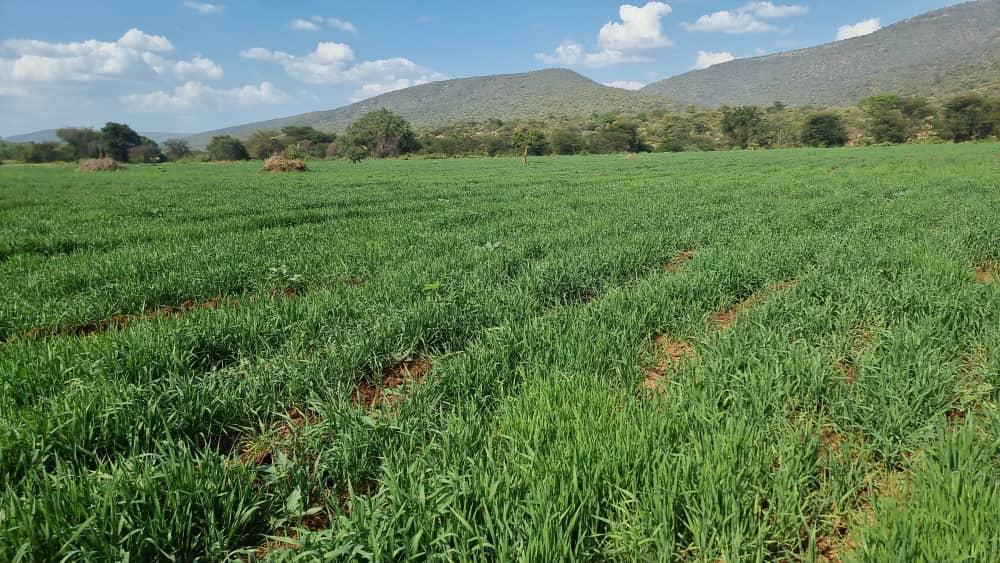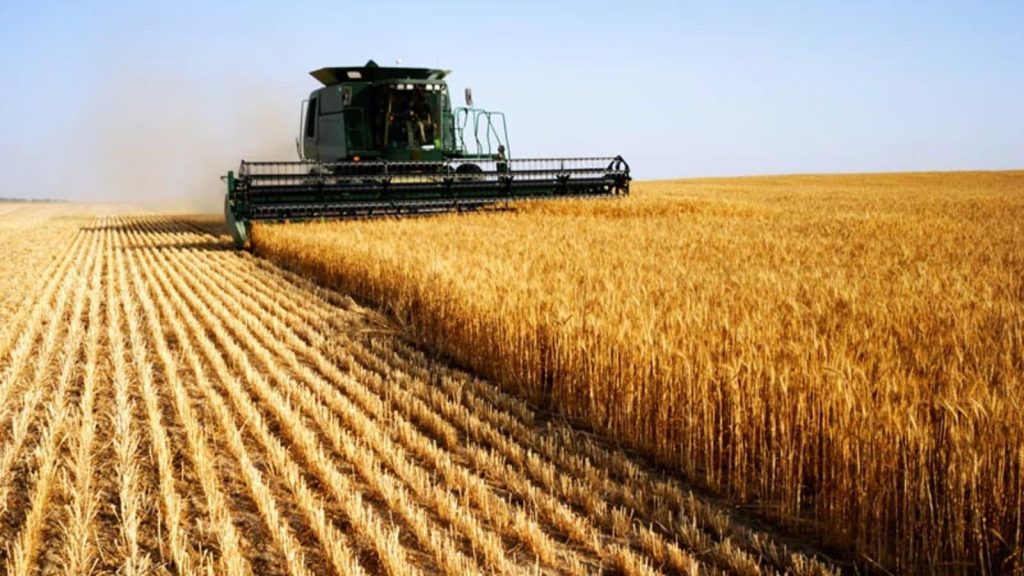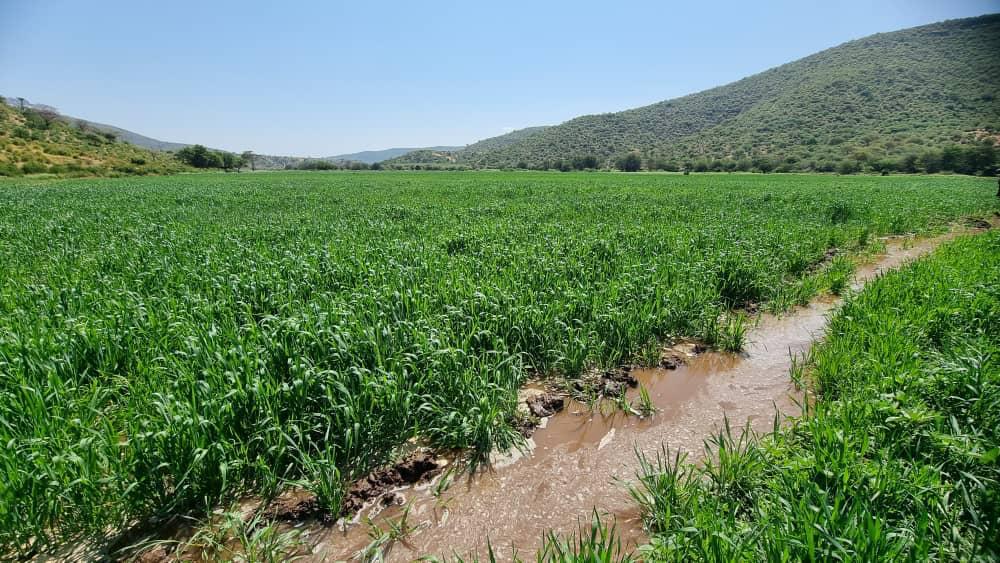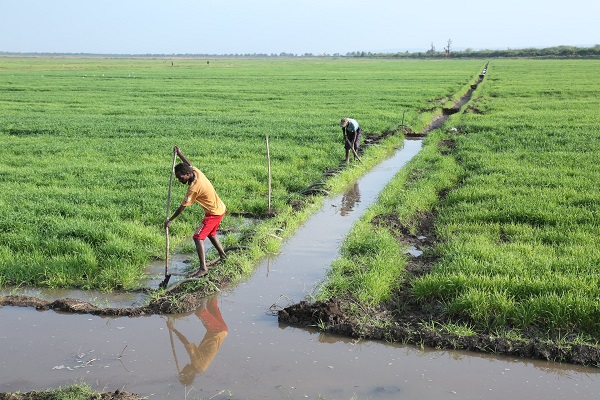Ethiopian Prime Minister Abiy Ahmed Ali has lauded the nation’s extraordinary progress in summer irrigated wheat cultivation, marking an unprecedented bumper harvest that surpasses previous records.
Against the backdrop of dynamic global wheat production trends and regional concerns about food security, Ethiopia’s achievements in wheat cultivation carry profound significance.
He said that this year’s summer irrigated wheat progress is much more advanced than that of last year and the results so far have been impressive.
“We are succeeding in our efforts to secure our food sovereignty by farming more than once a year. Our endeavours in all areas will lay the foundations for prosperity,” he added.

Wheat, acclaimed as the world’s second-largest grain in terms of acreage and total production volume, plays a pivotal role in meeting the escalating global food demands.
The global production volume of wheat surged to over 778 million metric tons in the 2021/22 marketing year, achieving a notable increase of about four million tons compared to the preceding year.
Projections indicate that wheat stocks worldwide could potentially reach approximately 286 million metric tons by the conclusion of the 2022/23 marketing year.
The European Union remains a cornerstone in the global wheat production landscape, forecasting a bumper harvest that could yield over 126.7 million metric tons of wheat by 2031, accounting for roughly one-fifth of the world’s wheat production.
Meanwhile, in the United States, approximately 46.7 million acres were planted with wheat, with 37 million acres harvested in 2021.
Notably, states like Kansas and North Dakota, often referred to as the ‘Wheat State,’ contribute significantly to the nation’s overall wheat production.
However, the reliance of many developing countries on wheat imports from Ukraine and Russia remains a critical concern.
As of June 2022, Armenia and Mongolia relied entirely on Russia for meslin and wheat imports.
Additionally, Laos reported an overwhelming dependence of over 98 percent on meslin and wheat supplies from Ukraine, underscoring the vulnerability of specific regions to disruptions in these markets.
Wheat, being a crucial staple food, witnessed a global consumption exceeding 793 million metric tons in the 2021/22 marketing year, buoyed by the bumper harvest.

Notably, China consumed approximately 150 million metric tons of wheat during this period.
The global per capita food use of wheat has consistently stood at over 66 kilograms per year throughout the last decade, emphasizing its ubiquitous presence in diets worldwide.
Ethiopia’s commendable success in achieving a bumper harvest in wheat cultivation aligns with broader initiatives across Africa and the globe to bolster domestic production and reduce reliance on external sources.

Prime Minister Abiy’s vision extends beyond mere agricultural milestones, emphasizing Ethiopia’s commitment to regional food security and stability amidst the complexities of the global wheat landscape.
Ethiopia’s strides in wheat cultivation stand as a testament to its resilience and dedication to food security.
The nation’s ongoing efforts in agricultural development, investment in technology, and support for smallholder farmers exemplify its commitment to strengthening its agricultural sector, contributing not only to domestic food security but also to regional stability in the face of global uncertainties.
On December 30, 2020 Ethiopia’s Ministry of Agriculture announced that the wheat, which is being cultivated through irrigation would reduce the import of wheat by more than half in the following years.
This was disclosed by Agriculture Minister Umer Hussen during a discussion with members of House of People’s Representatives.
Ethiopia has been importing 17 million quintals of wheat in a year.
According to the minister, the harvest expected from 300,000 hectares of land would help produce 10 million quintals.
In the past seasons, the flooding in Afar Region obstructed the effort to meet the target.
Some 90,000 hectares of irrigated land has been covered with wheat, and best seed, chemical, fertilizer supplies have been properly provided.
Currently, efforts are also being exerted to fully stop wheat importation within three to five years, Umer revealed then.



















